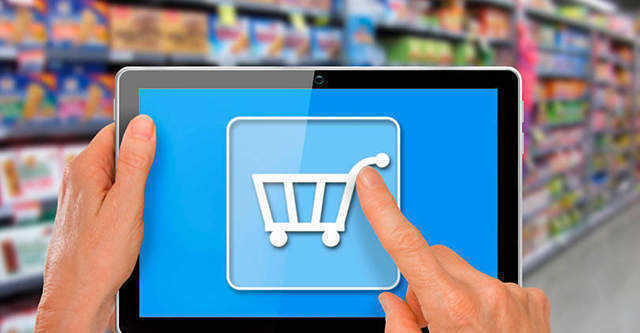
Essentials only 5% of ecommerce biz, Maharashtra curfew to hit majority of players


As Maharashtra enters a fresh Covid-induced curfew on Wednesday, with only essential services allowed to function, ecommerce firms are bracing for yet another blow to their businesses.
While the impact may not be as severe as it was last year, the curfew's effect on business for horizontal ecommerce will still be significant, according to experts.
With Mumbai and Pune, Maharashtra forms a significant chunk of business for ecommerce and allied services in the country.

“Maharashtra typically accounts for nearly 10% of the total value of goods sold by large ecommerce players per month. Of this, a majority of revenue comes from sale of non-essential items, while essentials make up hardly 5% in terms of value,” Saurav Chachan, engagement manager at RedSeer Management Consulting, said.
According to industry estimates, horizontal ecommerce players Amazon and Flipkart together average sales of $3 billion per month.
Given that there were early signs of an imminent curfew, ecommerce players were well prepared to stop delivery of non-essentials starting Wednesday, Chachan told TechCircle. Shipments of non-essential items from Maharashtra to other states will continue to function till further orders, he added.

Essential items include vegetables, grocery, and personal care, along with other items, as per government order. Ecommerce players and logistics companies are still awaiting clarity on which other items the category includes.
“We are also awaiting clarity from Maharashtra government for the classification of essential only categories, as we have seen that the list of items or categories in essential has been revised in phases during the last year's lockdown. For this, we are closely coordinating with our carrier partners and sellers as well as the local authorities,” Saahil Goel, CEO of logistics software platform Shiprocket, said.
He added, “All essential shipments already in transit will be delivered as per the process, though there could be a delay of 2-4 days due to the regulations and capacity.”

Shiprocket works with offline stores, digital brands as well as small and medium businesses (SMBs) in the categories of FMCG, health and nutrition and sanitary product makers. Maharashtra contributes double-digit revenues to its business, Goel said.
The current guidelines allow food and grocery deliveries to continue. The online grocery delivery sector is expected to see a jump due to the same, although it may be muted compared to last year, said industry experts.
Including grocery as a line of business and doubling down on the segment has helped platforms like Amazon and Flipkart hedge their bets.

Amazon Pantry has expanded its presence to nearly 300 cities now, compared to pre-Covid figures of 100. Flipkart Supermarket has grown to cover nearly 40 cities from around eight cities pre-Covid. The pandemic also accelerated the business-to-consumer operations of Reliance’s Jio Mart, which has a strong presence in Mumbai.
“This time around, supply chain is not compromised and players are prepared with adequate inventory,” Chachan said.
In a statement, a Swiggy spokesperson said that the food delivery platform is working closely with its restaurant and delivery partners, while its pick up and drop service through Swiggy Genie will continue to operate.

“Our pick up and drop service, Swiggy Genie, will continue to operate during the stipulated timings for essential items. We’re urging consumers to opt for no-contact delivery, while also ensuring adherence to various safety and hygiene protocols amongst our restaurant and delivery partners,” the spokesperson said.
